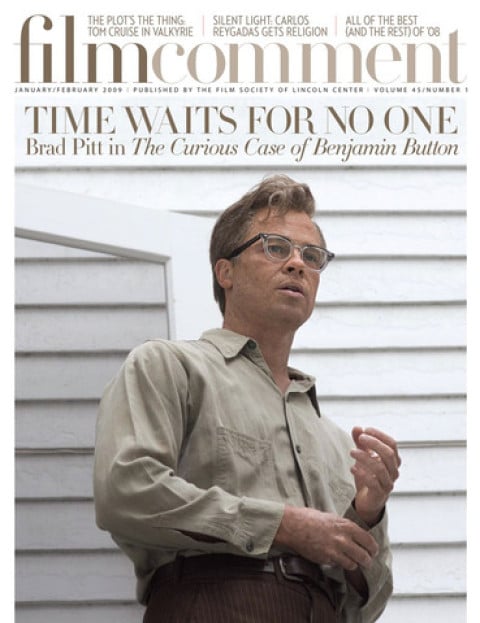
Hey, I’m like you—I can get a little apprehensive at an austerely shot setup involving an indebted Ukrainian prostitute, her scruffy boyfriend, and dicey plans for escape from it all. Are we here to stand vigil beside another exercise in unrelenting long-take doom, as a second thread with a frustrated cop and his well-meaning wife is introduced? Fortunately, Götz Spielmann’s precision-crafted drama quickly proves to be anything but, persuasively and naturally gathering force as a potent, sympathetically observed tragedy. Revanche patiently opens two fronts, carefully grounding the characters in their worlds and emotional routines. Alex (Johannes Krisch), an ex-con, does odd jobs at the same Vienna brothel where Tamara (Irina Potapenko) works. They conceal their tender relationship from their hearty, cheap-suited boss, who wants to move Tamara up to an apartment, for richer clients. Alex’s idea is to rob a bank in the town not far from his widowed father’s small farm; though this plan confirms the aging yeoman’s view of cityfolk (they become either “arrogant or scoundrels”), his thuggish-looking son aims to help his not-yet-beaten-down girlfriend. Meanwhile, diffident rural patrolman Robert (Andreas Lust) complains about not seeing any action, and at home, his solicitous wife Susanne (Ursula Strauss) ponders the immaculately designed but empty nursery. Keeping busy, she sets about coaxing a set-in-his-ways loner out to church—none other than Alex’s father (played by Hannes Thanheiser).
By this time, Spielmann (who also wrote the script) has dropped details such as Alex’s penchant for unnerving surprises, Robert rushing a final target at the shooting range, and the ever-present winter cap on the old farmer that bespeaks a “they’ll have to carry me out feet first” ethos. Without seeing much of the town we absorb a sense of provincial calm, even in Robert and Susanne’s perhaps eerily lucid views of green lawn and night sky. When the one-man bank stick-up goes down—culminating in Alex surprising Robert as he casually questions Susanne who sits waiting in the getaway car—everyone maintains an internal consistency that makes the characters’ crossing of paths a matter of credible reactions. (Here as elsewhere, Spielmann has a knack for building long, two-tiered scenes that balance his characters’ overall forward momentum with their staying in the moment.) Down the road, we realize that though he was aiming for the car’s tires, one of Robert’s shots has struck Susanne. Distraught, Alex holes up at the farm, where his father does not conceal his surprise (and eventually, contentment) at his son’s extended visit.

The irrevocable meshing of fates that determines the second half of the movie, as Susanne bumps into Alex while visiting his father (who takes up playing the accordion again), pivots on an impulsive but seemingly long-in-coming decision during a tense exchange. It works because Spielmann has established that we’re not watching belabored dramatic trajectories collide, but an encounter between two people in miles-away mindsets (the mise en scène seems averse to establishing shots not motivated by some sort of human activity in frame). That description already sounds far more portentous than the evenly paced and constructed Revanche actually is. As shot by Martin Gschlacht, the farm where Alex spends his days buzzsawing firewood is a pastoral vision with a drooping shady tree and by turns cozy and cavernous spaces. A nearby forest where Alex observes the policeman neighbor on his daily jogging route has a reserved beauty—unforgettably so in the film’s overture: an inkily shady lake reflection of pines.
Making all of this possible is a soundly directed cast that folds into the film entirely, from a light intradinner kitchen chat between Susanne and her mother to the lumpen Alex’s daunting interior progression through grief and beyond. And at the end of it all, when an ending and a recognition come, not one syllable is wasted.








